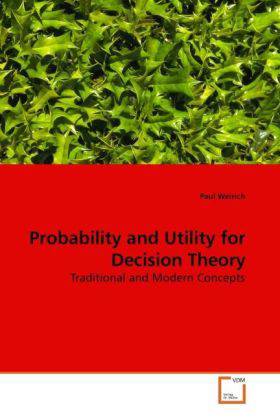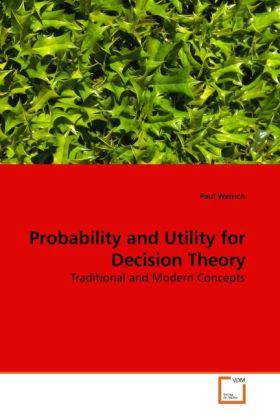
Bedankt voor het vertrouwen het afgelopen jaar! Om jou te bedanken bieden we GRATIS verzending (in België) aan op alles gedurende de hele maand januari.
- Afhalen na 1 uur in een winkel met voorraad
- Gratis thuislevering in België vanaf € 30
- Ruim aanbod met 7 miljoen producten
Bedankt voor het vertrouwen het afgelopen jaar! Om jou te bedanken bieden we GRATIS verzending (in België) aan op alles gedurende de hele maand januari.
- Afhalen na 1 uur in een winkel met voorraad
- Gratis thuislevering in België vanaf € 30
- Ruim aanbod met 7 miljoen producten
Zoeken
Probability and Utility for Decision Theory
Traditional and Modern Concepts
Paul Weirich
Paperback | Engels
€ 94,45
+ 188 punten
Omschrijving
One kind of probability and one kind of utility have decision theory as their central area of application. How should we understand this kind of probability and this kind of utility? This work compares two approaches to probability and utility. The first refines the traditional concepts of probability and utility, according to which they are rational degree of belief and rational degree of want. The second defines probability and utility in terms of preferences. Because degrees of belief and degrees of want are basic reasons for decisions, the traditional concepts characterize actions that should be chosen in terms that explain why they should be chosen. Consequently, certain refinements of the traditional concepts of probability and utility yield the best version of decision theory. This work will interest those studying probability and utility at a foundational level in mathematics, economics, and business management, as well as in philosophy. By clarifying probability and utility, it facilitates progress in decision theory.
Specificaties
Betrokkenen
- Auteur(s):
- Uitgeverij:
Inhoud
- Aantal bladzijden:
- 172
- Taal:
- Engels
Eigenschappen
- Productcode (EAN):
- 9783639233247
- Verschijningsdatum:
- 3/02/2010
- Uitvoering:
- Paperback
- Afmetingen:
- 150 mm x 220 mm
- Gewicht:
- 245 g

Alleen bij Standaard Boekhandel
+ 188 punten op je klantenkaart van Standaard Boekhandel
Beoordelingen
We publiceren alleen reviews die voldoen aan de voorwaarden voor reviews. Bekijk onze voorwaarden voor reviews.









